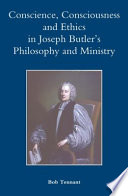

Most ebook files are in PDF format, so you can easily read them using various software such as Foxit Reader or directly on the Google Chrome browser.
Some ebook files are released by publishers in other formats such as .awz, .mobi, .epub, .fb2, etc. You may need to install specific software to read these formats on mobile/PC, such as Calibre.
Please read the tutorial at this link: https://ebookbell.com/faq
We offer FREE conversion to the popular formats you request; however, this may take some time. Therefore, right after payment, please email us, and we will try to provide the service as quickly as possible.
For some exceptional file formats or broken links (if any), please refrain from opening any disputes. Instead, email us first, and we will try to assist within a maximum of 6 hours.
EbookBell Team

4.3
68 reviewsOffers a new interpretation of Butler's theology and suggests that exploration of his methods may contribute to modern thinking about ethics, language, the Church as well as religion and science.
Joseph Butler [1692-1752] is perhaps Britain's most powerful and original moral philosopher. He exercised a profound influence over the contemporary Protestant Churches, the English moralists and the Scottish philosophical schoolbut his theory of the "affections", grounded in Newtonian metaphysics and presenting an account of human psychology, also set the terms of engagement with questions of education, slavery, missions and even labour relations. Inthe nineteenth-century English-speaking world he was an authority of first resort for Evangelicals, Tractarians, philosophers, scientists, psychologists, economists, sociologists, lawyers and educationalists alike. He remains a key reference point for modern American and British philosophers, from Broad to Rawls and beyond.
Many analyses of Butler, however, have been distorted by aggressively secular readings.
This book is based on a comprehensive reassessment of his published work and the surviving manuscripts and archival materials. These are set within an account of his spiritual and intellectual development and his ministerial vocation, from the protracted and painful process of conforming to the Church of England to his initial observations on a social philosophy.
Demonstrating that even The Analogy originated in liturgical preaching, this book offers a refreshed and detailed account of Butler's key terms - conscience, consciousness, identity, affections, charity, analogy, probability, tendency - and suggests that exploration of his methods may contribute to modern thinking about ethics, language, the role of the Church, and the religion and science debates.
BOB TENNANT taught English Literature at the University of Sussex, spent many years as a senior manager in adult education, and was a trade union and political activist
…